Bundle
AQA GCSE Psychology: Social Influence Topic Bundle
<p>This contains all 12 lessons in the Social Influence topic for AQA GCSE Psychology. It also contains a Homework booklet, a Starter booklet and the entire Social Influence Workbooklet.</p>
<p>Conformity</p>
<p>Identification and explanation of how social factors (group size, anonymity and task difficulty) and dispositional factors (personality, expertise) affect conformity to majority influence.</p>
<p>Asch’s study of conformity.</p>
<p>Obedience</p>
<p>Milgram’s Agency theory of social factors affecting obedience including agency, authority, culture and proximity.</p>
<p>Explanation of dispositional factors affecting obedience including Adorno’s theory of the Authoritarian Personality.</p>
<p>Prosocial behaviour</p>
<p>Bystander behaviour: identification and explanation of how social factors (presence of others and the cost of helping) and dispositional factors (similarity to victim and expertise) affect bystander intervention.</p>
<p>Piliavin’s subway study.</p>
<p>Crowd and collective behaviour</p>
<p>Prosocial and antisocial behaviour in crowds: identification and explanation of how social factors (social loafing, deindividuation and culture) and dispositional factors (personality and morality) affect collective behaviour.</p>
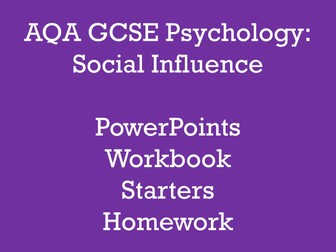
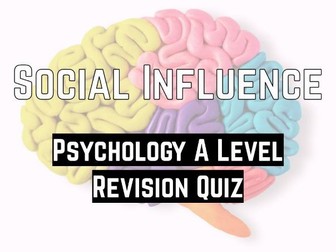
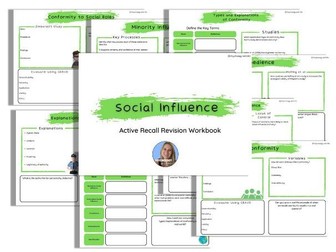
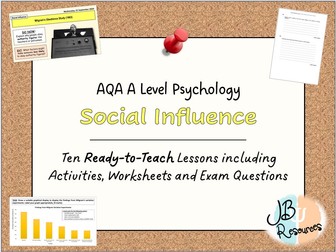
![AQA A-Level Psychology - TYPES AND EXPLANATIONS OF CONFORMITY [Social Influence Topic]](https://l.imgt.es/resource-preview-imgs/78f8b88b-2059-4bdc-ab7b-b617ae6cad95%2FTESSIL1update.png?profile=res-img-med-legacy-v2)
![AQA GCSE [9-1] PSYCHOLOGY - SOCIAL INFLUENCE LESSONS](https://l.imgt.es/resource-preview-imgs/e2949184-d5e6-4735-a201-90b03ffa9d87%2FScreenshot20211101at205338.crop_572x429_0%2C0.preview.png?profile=res-img-med-legacy-v2)
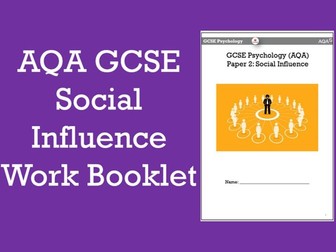
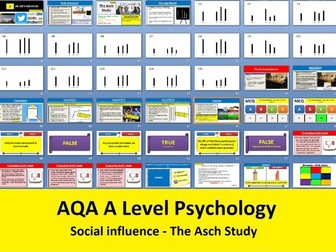
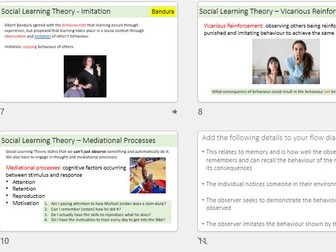
![AQA A-Level Psychology - DISPOSITIONAL EXPLANATIONS FOR OBEDIENCE [Social Influence Topic]](https://l.imgt.es/resource-preview-imgs/db220321-786c-4878-bb08-157a423758c7%2FTESLIL7update.crop_966x725_2%2C0.preview.png?profile=res-img-med-legacy-v2)
![AQA A-Level Psychology - SOCIAL-PSYCHOLOGICAL FACTORS [Social Influence Topic]](https://l.imgt.es/resource-preview-imgs/38258727-3559-4fdb-882d-47c49c0dcb15%2FTESSIL6update.crop_971x729_0%2C1.preview.png?profile=res-img-med-legacy-v2)
